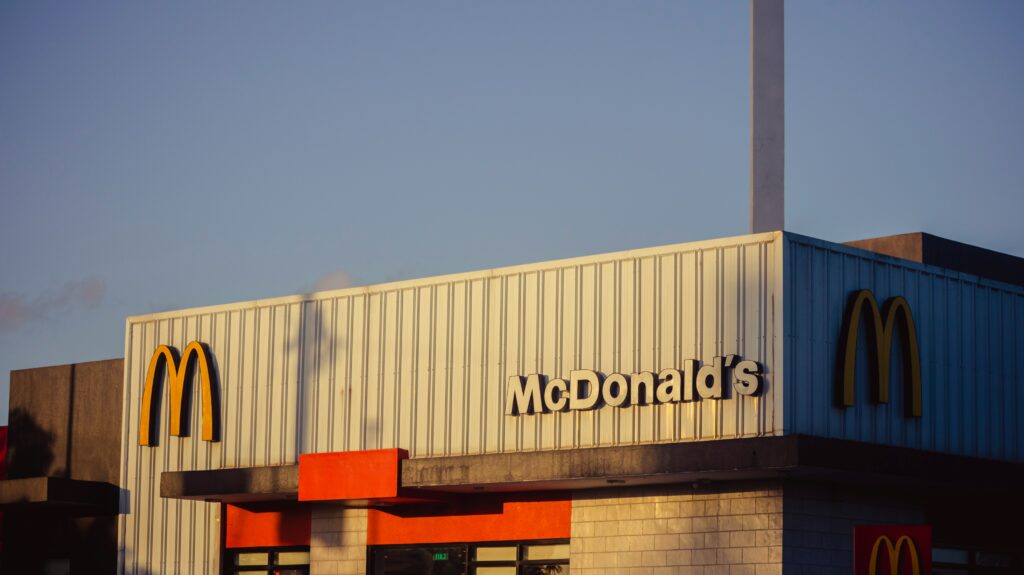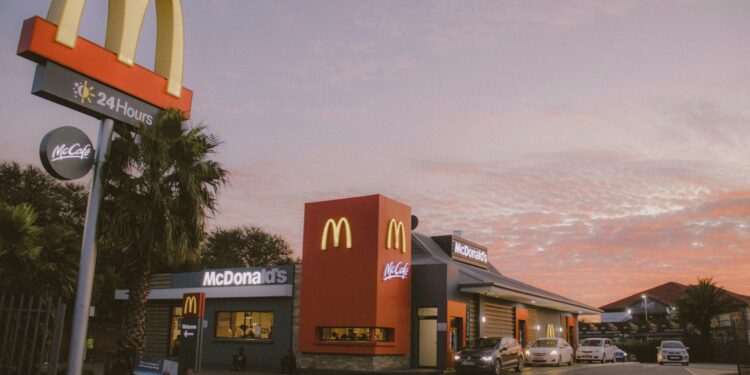McDonald’s Corp. (MCD) faces significant challenges after the Centers for Disease Control and Prevention (CDC) linked an E. coli outbreak to its popular Quarter Pounder burgers. With shares falling 7% in premarket trading, the outbreak has resulted in 10 hospitalizations and one death, forcing the fast-food giant to take swift action to contain the situation.
The CDC reports that 49 cases of E. coli infection were confirmed across 10 states, primarily affecting Colorado and Nebraska. McDonald’s initially responded by linking the contamination to slivered onions used in the Quarter Pounder, sourced from a single supplier.
The outbreak has led to serious illnesses, including one fatality in Colorado, highlighting the severe impact of this contamination on public health and McDonald’s brand.
CHECK THIS OUT: Lakeside Holding (LSH) CEO Henry Liu Talks Recent IPO in Exclusive Interview

How a $6B Loss Puts McDonald’s Quarter Pounder at the Center of a Food Safety Scandal
This $6 billion loss for McDonald’s is not just about immediate financial repercussions but is part of a larger issue affecting the fast-food industry, food safety. McDonald’s has built a global reputation for reliable fast food, with the Quarter Pounder generating billions in revenue annually.
The introduction of fresh beef for Quarter Pounders in 2018 was a strategic move to enhance the quality of one of its most popular items. Now, however, the very product that helped revitalize McDonald’s offerings is at the center of a potentially devastating health crisis. This incident is emblematic of broader challenges within the food industry, where safety, supply chain reliability, and quick, decisive action are crucial.
E. coli outbreaks can cause irreparable damage to a brand if not managed well, as consumers are increasingly focused on food transparency and health. McDonald’s must restore trust by implementing rigorous safety protocols, improving supplier oversight, and clearly communicating with the public.
Food-borne bacteria cause E. coli cases, thriving in unsanitary conditions or improper handling during distribution or preparation. The fast-food industry, with its vast supply chains and high-volume production, is particularly vulnerable to such incidents. This situation presents a stark reminder of how delicate the balance is between efficient operations and maintaining food safety standards.
McDonald’s Takes Action: Quarter Pounder Recall and Onion Removal Amid E. Coli Crisis
McDonald’s began resolving the issue by removing slivered onions and pausing Quarter Pounder sales in affected areas. The company is now working with suppliers to prevent future contamination of its products.
McDonald’s must rebuild its reputation by enhancing transparency, improving food safety protocols, and effectively communicating with consumers and investors.
However, the CDC has warned that the full extent of the outbreak may not be known for several more weeks. Given the potential for more cases to emerge, McDonald’s could face further operational and reputational risks. Investors should closely monitor how the company manages this crisis and what steps it takes to prevent future outbreaks.
McDonald’s faces potential legal challenges and customer backlash, which could affect sales and stock performance in the coming months.
READ ALSO: Nvidia’s Stock Soars Amid Continued Demand in AI and Semiconductor Sectors and Apple Surpasses Microsoft to Become the Most Valuable U.S. Public Company.






